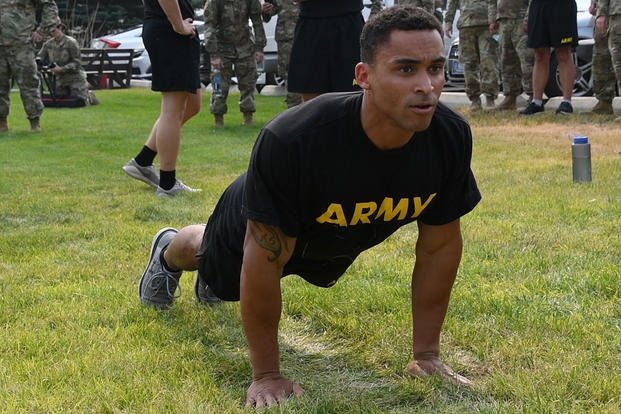Words like motivation and mental toughness often get tossed around when it comes to preparing for anything challenging. Usually, I write about these topics in an effort to answer common questions I receive about "not quitting," or thoroughly preparing for various military special operation professions. These are valid questions coming from highly motivated people, but often the difference between success and failure is not how motivated you are to succeed, but how disciplined you are during your preparation.
Looking at motivation and discipline a little deeper, you may find that if motivation does not evolve into a disciplined and habitual training cycle, you could fail for many reasons (injury, not meeting standards, etc.).
The motivation to be or do anything has to become a discipline for it truly to work.
From Psychology Today:
"Motivation is literally the desire to do things. It's the difference between waking up before dawn to pound the pavement and lazing around the house all day. It's the crucial element in setting and attaining goals -- and research shows you can influence your own levels of self-motivation and self-control."
Motivation must evolve into discipline, because what happens when you are not motivated that day? At the very moment you have to decide to stay comfortably in bed or get up and keep reaching for your goals. This is discipline and mental toughness. You cannot have discipline without mental toughness. Training hard or studying and working long hours not only shows mental toughness, but it is discipline defined.
Discipline, like motivation, has to be self-discipline. From EruptingMind.com -- "When you have to get something done, you get it accomplished even when you do not feel like it." Turning down that voice inside of your head that wants to cheat on your diet, skip a workout and sleep in is a daily battle, but over time, your self-discipline wins and these obtrusive thoughts become fewer and fewer.
It is easy to be motivated. I get motivated by watching sports, reading an inspirational story or even a meme on social media. But having that evolve into daily habits of hard work, discipline and ultimately success is truly the challenge. Here are some ideas to help with that very empowering evolution.
1. Turn off the lazy voice inside your head.
Professionals call this self-denial. In military special-ops preparation, the voice that makes you want to quit running has to be silenced. Resisting the urge for the easier option is taking motivation and discipline to its operational level.
You have to shut down that thought immediately and replace it with "can't quit," or stay more positive with "keep going." Regardless, find what works for you at this moment and give it a name. Make it your performance cue.
2. Develop into a daily routine.
Training a few times a day is often a recurring theme in your special-ops preparation due to tight work or school schedules and long run, swim, ruck, lifting and calisthenics workouts.
You want to make sure you get them in regularly. Set aside open time for an early morning run or PT. Squeeze in a 1,000- to 1,500-meter swim during lunch and lift and run or ruck after work. Then eat well and sleep (recover). All have to be in a regular routine if your high-level preparation is going to work.
3. Remember the long-term gain.
It is difficult to train hard every day when you know your selection date is more than a year away. You have to remember the long-term goal, and achieving your dream job for sure, but you also can build some short-term gains to keep that year more interesting.
Depending on what branch of service you are seeking, enter some running or swimming races, a GoRuck event or do obstacle course races so you have some competition to drive you harder during the long year or more. Maybe these short-term goals can be personal records for fitness tests or timed events you will encounter. Work at getting stronger and faster every quarter and establish some sub-goals.
4. How big is your "want-to"?
The future lifestyle you seek has to resonate with you deep inside. You have to want to serve your country first. You also have to enjoy working out so much that you would do it even if you were not preparing for a challenging selection or event. You have to enjoy getting uncomfortable and find the physical pain of exhaustion a personal challenge.
You cannot measure someone's heart (or "want-to"), but you can work hard every day, demonstrate your motivation to yourself and others, and evolve into a highly disciplined person. It takes time, and you have to put that time in yourself.
These are a few of the many common traits of those who have gone before us and have succeeded. Seeing those who have endured helps strengthen the inner voice that says what you are enduring is not impossible. You should be able to hear yourself say, "Others have completed this; why can't I?"
Related motivation articles:
- Daily Motivation Builds Mental Toughness
- Fitness Motivation (Top Reason to Train)
- Motivation to Serve
- Fitness Motivation (Plan B)
- Getting Moving -- Stay Motivated
Stew Smith is a former Navy SEAL and fitness author certified as a Strength and Conditioning Specialist (CSCS) with the National Strength and Conditioning Association. Visit his Fitness eBook store if you're looking to start a workout program to create a healthy lifestyle. Send your fitness questions to stew@stewsmith.com.
Want to Learn More About Military Life?
Whether you're thinking of joining the military, looking for fitness and basic training tips, or keeping up with military life and benefits, Military.com has you covered. Subscribe to Military.com to have military news, updates and resources delivered directly to your inbox.




















